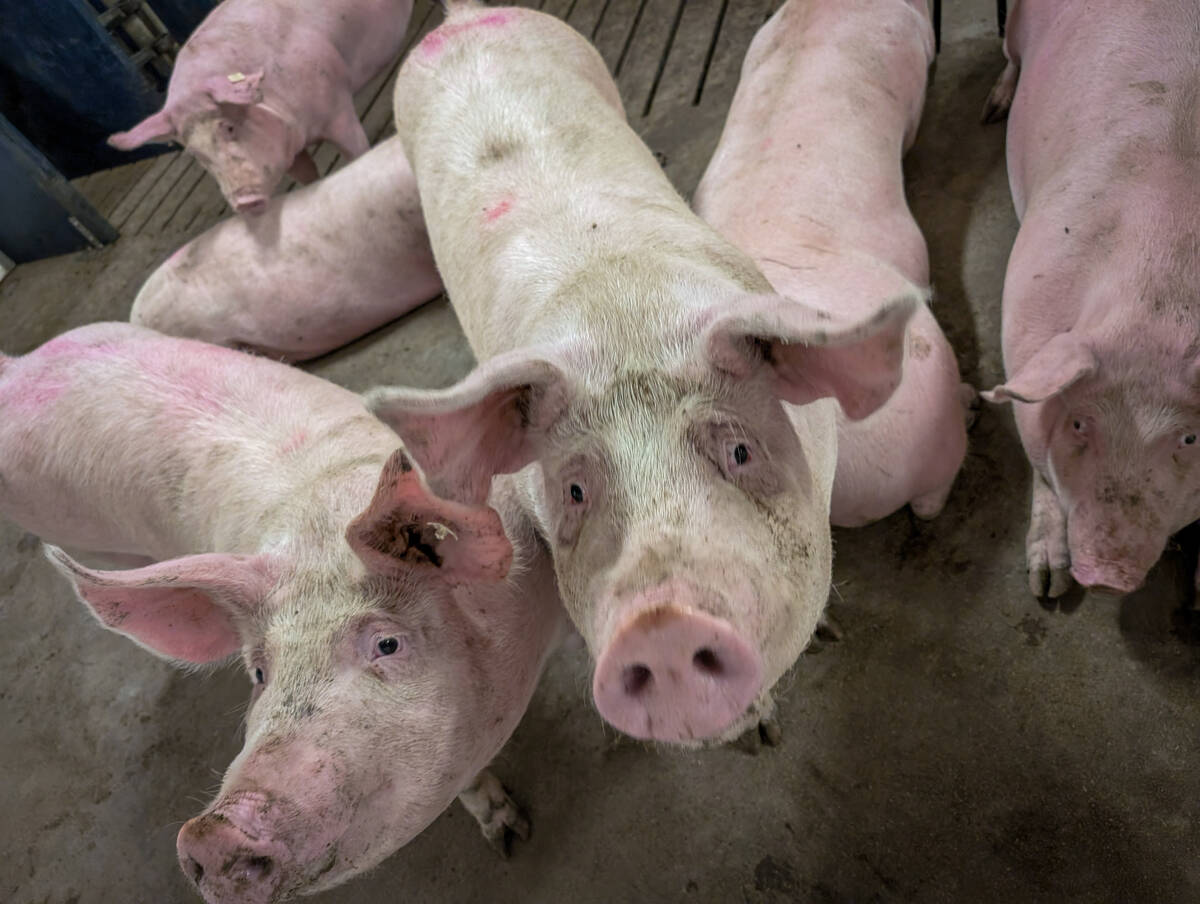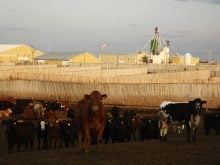HIGH RIVER, Alta. – A partnership between two southern Alberta women provides a unique form of psychotherapy using horses to help troubled children and stressed adults.
The Equine Assisted Growth and Learning Association was formed in the United States in 1999. The techniques have been under development for more than a decade with children in custody.
Certified riding instructor Laurie Messner and her friend, High River psychotherapist Cathie Johnson, have been studying the technique since 2000. Their company is called Winning Strides.
Three levels of expertise and certification are available through the association.
Read Also

Pork sector targets sustainability
Manitoba Pork has a new guiding document, entitled Building a Sustainable Future, outlining its sustainability goals for the years to come.
Messner and Johnson are the only certified Level 2 practitioners in Canada and have started demonstrating it to health-care professionals, teachers and social workers.
The programs are offered by a horse expert who monitors the animals and a licensed therapist who guides the people through their emotional difficulties.
One and a half hour sessions are provided at Messner’s farm near Nanton. They work with individuals as well as groups as large as eight. Clients may be as young as 10. Families are also welcome.
“We work with anybody who needs help. It is suitable for anybody,” said Johnson.
Horse experience is not required. Messner provides the horses and monitors activities to keep everyone safe.
“For the activities, I need to have horses with certain behaviours,” said Messner.
Johnson diagnoses the clients.
Emotional or behaviour problems are usually obvious to both women as they watch people deal with the horses in a series of activities. Traditional therapy using talk is rarely required.
“As soon as you get out there and start interacting with the horse, your problems become obvious right way,” Johnson said.
Provide insight
Clients perform activities with horses to learn more about themselves and alter human behaviour.
People may be asked to catch a horse in a corral that is not wearing a halter or saddle. They may get the horse to walk through a simple obstacle course, or else groom it or work on its hoofs. Any riding is done bareback.
How they do the activity and solve the problem is part of the therapy. Later, if someone wants to learn how to catch the horse or put on a halter properly, Messner shows them.
“The hardest part is not to teach. The therapy does not come from them sitting in a classroom and learning how. The therapy comes from them looking at themselves,” said Johnson.
“It is really difficult watching them struggle and get angry and frustrated. You get them to come to their own insights.”
For example, angry people learn that aggressive behaviour cannot get results and they must modify their approach to get a horse to co-operate.
Their favourite clients are professional women who are under stress or feel they have not met their potential in the workplace. The equine program offered to the women as a weekend retreat can promote self-discovery and rebuild confidence.
Children with a variety of problems can also benefit from the therapy. Those with learning or behaviour problems, autism, eating disorders, with low self-esteem or in trouble at school have come through the program successfully within three to six appointments.
They do not work with severely mentally or physically handicapped people who may benefit more from therapeutic riding.















